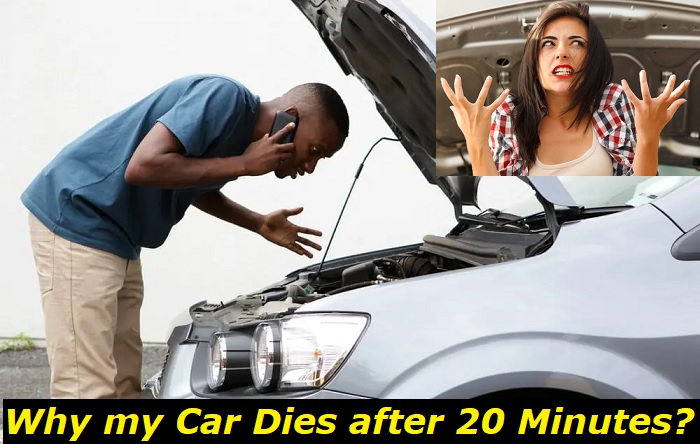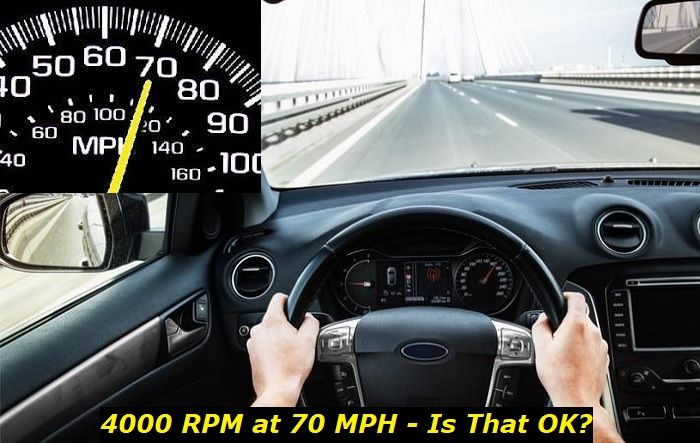Every car owner has some problems on the road one day. You may even have a new vehicle but sometimes, it doesn't save you from some bad experience. For example, some drivers report that their vehicles just shut off after 20 minutes of normal driving. And they just can't locate the problem and solve it.
Today, we'll be analyzing why your car dies after 20 minutes and why you can't even get to your job without some problems. Of course, you need to have this problem repaired as soon as possible. Because to keep driving your vehicle with such a symptom is a really bad idea - you can just get into problems and even into accidents because the engine shuts off on the go.

Here's what we'll be talking about:
- Why does my car die after driving for 20 minutes or so?
- What should I check at first - the step-by-step guide.
- How can I solve the problem? Some DIY methods.
- How can I avoid problems with my car dying every 20 minutes of driving?
Let's get started!
Why can your car just die after 20 minutes of driving?
The first thought you may have is the accumulator. Well, the battery has nothing to do with this as long as your alternator works well. Because once you start your engine, the battery has already done its job, so it isn't working anymore and sends all the responsibility to the alternator. That's why blaming a battery and checking it is not a very efficient way to deal with this problem.
Yes, we know that you will still check the battery first and then get back to this article. So after you are seated back in your car, let's think about possible reasons for the problem. We understand that the car works because it has just gone for 20 minutes with no obvious problems.
Here's what can cause your problem:
- The alternator. We would check it first because it's quite possible that it doesn't work and your accumulator needs to supply the entire vehicle with energy. Of course, the battery dies quite quickly and it may need some time before it can start the engine back.
- Wiring. The next step is to check the wiring. For example, your battery cables may be just corroded and this may lead to the bad transition of electric current. Or one of the wires may fall off the alternator cutting it off the system or off the part of the electricity supply system.
- Fuel supply. We are pretty sure that if it's not about electricity, it's about fuel. If your vehicle shuts off after 20 minutes of driving, chances are the fuel pressure is too low. You should check the fuel filter and the fuel pump - they may be clogged or broken.
- Air filter. Fuel will not be burnt in the engine properly unless the engine gets a decent amount of air to form the fuel-air mixture. This is super important, so any clogging in the air supply system will be fatal. So, the air filter is the first thing to check.
- Turbocharger. Also, the turbocharger may form some problems with the air supply. If it's broken, the engine may go to limp mode or just shut off after some time of driving. Checking it is really important if you have a turbocharged engine.
- Sensors. Some of the engine sensors may just glitch. This will send wrong signals to the ECU and the engine may stop working at a certain moment. It may stall after every stop and then it is hard to restart.
Also, you should be sure that the quality of gasoline is good. Bad gas may also be the reason for this problem. We don't only mean the quality of the gas, but also its age. If your vehicle has spent one or two years in a garage without being started even once, the gasoline in its tank is bad and should be replaced.
One more possible reason for this problem is the engine age. It may be too old and faulty to offer normal driving. For example, some oil may go to the combustion chamber and spoil your spark plugs. Once they are covered with oil, they can't ignite gasoline and your vehicle will just stall. After that, you'll need to wait at least 20-30 minutes before trying to start the vehicle again.
Understanding the problem by some symptoms
When your car keeps stalling every 20 minutes, it irritates. You just can't plan anything because you aren't sure that the vehicle will be able to get you to a certain place at a certain time. So, it's much better to repair this problem as soon as possible.
We've gathered the most common symptoms and have predicted where you should look if your vehicle shows the same symptoms.
Here are some of the most obvious scenarios:
- The vehicle shuts off after 20 minutes of driving but then easily starts. The most possible issue is wiring. Some wires go off and then suddenly recover the contact.
- The car hesitates and stumbles and eventually stalls. What you should check is the air and fuel supply and also the turbocharger. They are most likely to blame in this situation.
- The vehicle stalls after 20 minutes and then can't be started again for 20-30 minutes. Seems like the spark plugs are to blame. They may be covered with oil and this may be a symptom of big trouble with the engine (like head gasket failure).
- Some errors and fault lights come on the dashboard of your vehicle and then the car stalls. This means the ECU detects some problem and may send the vehicle to a limp mode or fail to control the position of certain elements of the engine.
- The car stalls and never starts again. Seems like you've run out of fuel or some fuel line was broken.
Every symptom has a certain explanation. If you spend some time to try and locate the problem, you will most likely find it easily. Don't panic and try to analyze what has changed recently in the way your car behaved.
Any problems may be repaired. But if you just take your vehicle to the repair shop and ask a mechanic to locate and repair the issue, it will take a long. If you come with a located problem and ask to repair it, it will be cheaper and faster.
Some DIY methods to solve the problem
While some possible reasons don't allow car owners to repair or even improve the situation somehow, some other problems mean you can do something to keep driving your vehicle at least with fewer chances for it to stall at every corner.
If it's all about alternator inner problems, head gasket failure, bad engine, or some deeper mechanical problems, there is nothing you can do. Stop trying to start your engine again and call for help.
But you may try to improve the situation if things are different:
- Check the cables that connect the battery and alternator to other parts and units of your vehicle.
- Check fluid levels and top up some of them if necessary. Sometimes, they may show that the engine is in trouble.
- Screw out spark plugs if it's possible in your engine and see if they are not wet or totally black. Clean them and try again.
- Scan the vehicle for fault codes using one of the cheap scanners and make sure there are no fatal codes.
- Make sure you have enough fuel. Be careful - the fuel gauge may be wrong, so you should just add some gasoline (or diesel fuel) to make sure this is not the core of the problem.
- Check the filters. You may easily get to the air filter and see if it's not dirty and clogged. This may help if you just clean it or even take it out.
These are just some standard things you may do even without having much experience in car repair. Checking spark plugs may be a challenging task in some engines, so maybe you should leave it to your mechanic.
Once you locate the problem, you may even try to deal with it without any professional help. For example, you may tighten some cable holders or change the air filter or even change the spark plugs just by yourself.
Final words
When your car stalls after 20 minutes of driving, this is not safe at all and you shouldn't just keep driving the vehicle hoping that the problem will disappear - it won't. You need to pay attention to symptoms and locate the core of the issue. After that, you may try to deal with the problem by yourself or let a specialist do this.
Avoid driving your vehicle if it can stall at any moment. This may be the reason for serious cases and accidents on the road and this can be a threat to your life and health.
About the authors
The CarAraC research team is composed of seasoned auto mechanics and automotive industry professionals, including individuals with advanced degrees and certifications in their field. Our team members boast prestigious credentials, reflecting their extensive knowledge and skills. These qualifications include: IMI: Institute of the Motor Industry, ASE-Certified Master Automobile Technicians; Coventry University, Graduate of MA in Automotive Journalism; Politecnico di Torino, Italy, MS Automotive Engineering; Ss. Cyril and Methodius University in Skopje, Mechanical University in Skopje; TOC Automotive College; DHA Suffa University, Department of Mechanical Engineering






Add comment